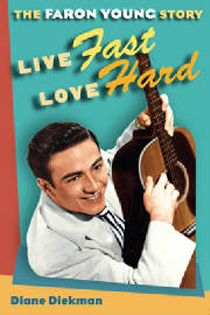"ROME (AP).- Italian tax police said Saturday that they had seized works by Van Gogh, Picasso, Cezanne and other giants of art in a crackdown on assets hidden by the disgraced founder of the collapsed dairy company Parmalat. Parma Prosecutor Gerardo Laguardia said that, based on wiretapped phone conversations, officials believed at least one of the paintings hidden by Calisto Tanzi, founder of the dairy company Parmalat was about to be sold. Authorities estimated the 19 masterpieces stashed away in attics and basements were valued at some euro100 million ($150 million). No arrests, as yet, were announced as part of the art seizure." (Photo and text from Art Knowledge News. Their newsletter is fantastic and the website a sure place you'll want to visit.)
Just when we think we've seen it all. No new treasures, no old treasures to surface, the Italian tax police clear out a dairyman's secret attic room and viola! A stash of Van Gogh, Picasso, Cezanne and other giants of art come to light. Interesting comment about 'no arrests as yet.... '
I just completed writing a review of Tracy Kidder's latest book "Strength in What Remains." It reminded me of a reoccuring topic -- reoccuring for me since the first time I read the word 'Holocaust' and saw the naked skeletons walking or piled like cord wood or staring sightlessly from a mass grave. This 'stash' brings back the Holocaust and makes me wonder if these works of art once belonged to Jewish families who ended up dying in gas chambers or concentration camps? Rochelle Krich wrote Blood Money about this; Lev Raphael won awards for his The German Money concerning this topic. Leon Uris wrote Exodus and Armageddon and a whole string of best selling novels based upon Jews and the Holocaust. Exodus, I understand, is so strongly fact based that it could stand as nonfiction.
Funny how one thing leads to another. In Kidder's book, a young man Deogratias is happy in a pastoral life in Burundi. His family know hunger, but they have cattle, are respected and liked by others and are better off than many. He accidently hears the terms Tutsi and Hutu. His family will not discuss the words. They became angry and refused to discuss what it means to be Tutsi in a country whose majority is Hutu. They won't mention an uprising, a cleansing that happened before Deo's birth. When the 'next' genocidal civil war erupts in 1994, Deo is unprepared for the carnage, the hatred, the wild mob mentality and then the silence. You will see the entire review at Interent Review of Books with their next posting. But for now, let me say that man's inhumanity to man is alive and well and just as horrific as ever.
But back to the Italian Tax Police. Do we have United States Tax Police? I don't know. I suppose the local sheriff gets to take care of clearing out a person's possessions if they fail to pay taxes. Evict them from their homes. Foreclose -- oh that would be the banker. Where do the people go? What becomes of them? And What becomes of the growing anger and frustration and dispair?
Do you feel the story here? Do you wonder? Are you curious?
Do you think of Susan Vreeland's "Girl in Hyacinth Blue" and the linear stories of the people who owned an 'unknown' Vermeer painting? A novel, yes. And so delightful in these stories complete in a chapter/section, yet linked by the painting.
Is this synchronistic scene or word association considered layers? Even Deo's name conjurs up another popular book and author -- The Da Vinci Code by Dan Brown. Tom Hanks. Catholic Church. Eradications and excommunications and secret societies.
Is this why writers must be readers and scholars and above all curious? If I hadn't read these books, if I hadn't been curious about the art thieves during the Holocaust, if I hadn't thought about history and events not directly associated with a simple reporting of Tax Police finding a stash of paintings, this would be a very short and perhaps even more boring blog than it is! But then again, if I had read more extensively I could add more substance. More background, fact, reason, politics, psychological fallout, more depth.
I think this is the key to good writing. Knowledge and research and maybe most of all curiosity. Seek to connect things that are unrelated. Math and genocide? Is there a connection? Music and war? Cooking and freedom? The writer must see the connections between so many diverse and seemingly unrelated things.
As I write this I hear arguing on the television over the Afghanistan war. More man's inhumanity to man. I imagine this is more proof that this is a story that will not go away. Maybe it is up to writers to find a new perspective, a new way of reporting or seeing or characterizing this theme that engulfs our world -- whether we want to see it or not.
Sunday, December 6, 2009
Tax Police Uncover an Art Stash and I See a Novel Idea!
Subscribe to:
Post Comments (Atom)























2 comments:
You've been looking for an idea for ages. Now you have one. Hugs and smiles,
So far I haven't had an idea that lasted for more than a few chapters though. Unlike you! Always good to hear from you!
Dawn
Post a Comment